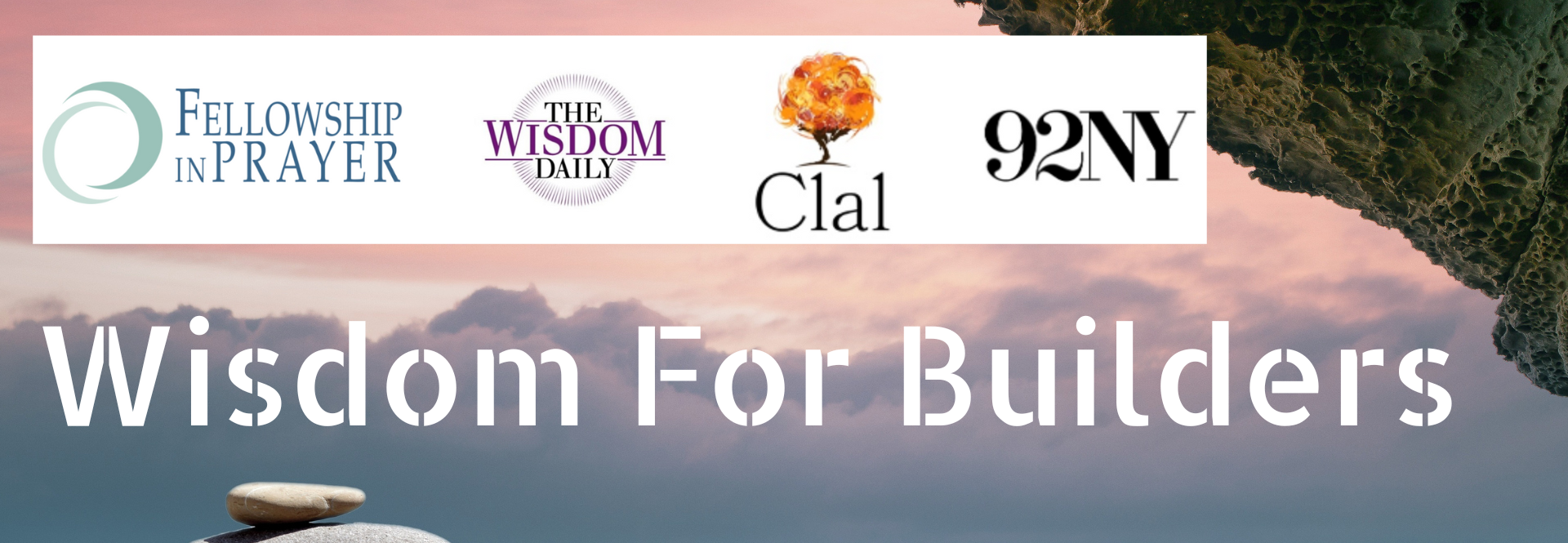One of the great Jewish controversies has yet to be fully resolved. It began over nine centuries ago when Rabbi Abraham Ibn Ezra suggested that the word “create” did not mean creation from nothingness but rather shaping or forming substance that already existed. Successive scholars either embraced or eschewed this notion of creation as either an answer to the notion that “matter can neither be created nor destroyed” or as a heresy undermining God’s potency. At times it even flared up into internecine strife.
Yet this debate eludes a more immediate reality for human beings: we can only shape that which already exists. Far more than creators in any cosmic sense, we are builders in ways both tangible and in the realm of ideas and human organization.
Perhaps in this aspect, we possess both similarities to the Divine – and profoundly human limitations. In Genesis 1:26, the first Torah portion of the new lectionary cycle, we read of the Sixth Day of Creation and God’s plans to create human beings:
And God said, “Let us make humankind in our image, after our likeness. They shall rule the fish of the sea, the birds of the sky, the cattle, the whole earth, and all the creeping things that creep on earth.”
Human beings are not bigger or stronger than other animals but have a strength of mind, an ability to communicate and coordinate with others, and the capacity to make and use tools that puts them in a place of strength relative to any other creatures.
Yet that very strength of human intellect and potential as builders also creates moral challenges. Building is morally neutral; those who engage in building towards a better future must wield this strength with care, compassion, and a depth of awareness of those who will be impacted by that which they build.
Jewish tradition is filled with critique for builders and stories with which to temper their ambitions. The first one mentioned in the Torah is Cain – who is also the first murderer (Genesis 4:17). The great Midrashic commentary of Pirkei d’Rabbi Eliezar relates the story of Abraham cursing those building a tower who ignored people who died in the building process but mourned any single brick that fell. In a classic debate between the two rabbinic schools of Hillel and Shammai, Shammai pushes a potential convert away with a cubit – showing the ruthlessly practical mindset of the builder he was (BT Shabbat 31a).
Yet Jewish tradition also shows a reverence for the sacred potential inherent to building. The Babylonian Talmud describes Jacob as the builder of a nation whose sacred work continues forth in the generations that succeeded him (Berakhot 64a). Psalm 147 even describes God as “the builder of Jerusalem” who “will gather the exiles” of our people – a notion reiterated multiple times per day in the Birkat HaMazon grace after meals.
Both strands of Jewish thought affirm the potency of building. It is emblematic of our very humanity – and filled with both Divine potential and human foibles.
This new series, launched with the support of Fellowship in Prayer, will bring together Jewish thought-leaders from across backgrounds, denominations, and areas of vocation to reflect upon what it means to build – and what wisdom we can bring to bear upon the process of bringing new social ventures into the world. It will draw upon the wellspring of Jewish wisdom from the Torah, Talmud, Midrash, and newer commentaries and philosophical writings.
Each month of the lectionary cycle, we will publish a special issue of “Wisdom for Builders” on the Wisdom Daily and send out a dedicated e-mail, which also features an accompanying conversation between contributors. It is not intended to be only for formal leaders of social enterprises, non-profits, houses of worship, and private sector institutions – but also for community-builders, organizers, social connectors, and people who foster relationships with intention and care. It will delve into the nuance and beauty of building in many different areas of life, surfacing the inherent challenges therein, as well as the sources of meaning and profound opportunities, both individual and collective.
Our assumption is that many builders do their best building together – and that the same is the case in the realm of thought and ideas, asking deep and challenging questions of each other. Together, we can surface the ethical mandates and moral dilemmas inherent to building; together, we can gain strength in a tradition that looks backward in hopes of empowering us to build ahead. This series will not be political in nature but instead will home in on the human process of building, with all its theological, social, and emotional implications.
We are grateful for the support and inspiration from Fellowship in Prayer, for the invaluable contributions of Jewish thinkers of all backgrounds, and for the chance to enter this new Jewish year and new Jewish lectionary cycle with a renewed love of Torah and the building blocks it provides for human endeavor.
Please join us in this dialogue.
This new series, launched with the support of Fellowship in Prayer, will bring together Jewish thought-leaders from across backgrounds, denominations, and areas of vocation to reflect upon what it means to build – and what wisdom we can bring to bear upon the process of bringing new social ventures into the world. It will draw upon the wellspring of Jewish wisdom from the Torah, Talmud, Midrash, and newer commentaries and philosophical writings.


